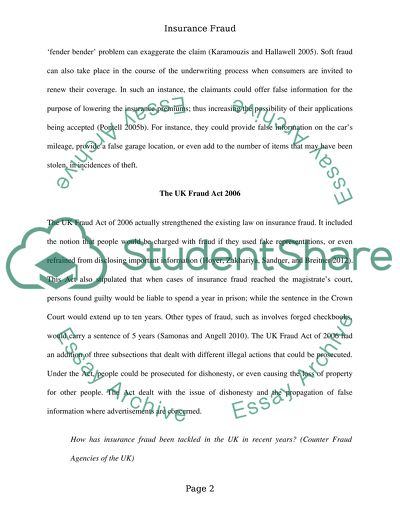Cite this document
(“Insurance Fraud and its Perpetration Essay Example | Topics and Well Written Essays - 1750 words”, n.d.)
Insurance Fraud and its Perpetration Essay Example | Topics and Well Written Essays - 1750 words. Retrieved from https://studentshare.org/law/1638131-insurance-fraud
Insurance Fraud and its Perpetration Essay Example | Topics and Well Written Essays - 1750 words. Retrieved from https://studentshare.org/law/1638131-insurance-fraud
(Insurance Fraud and Its Perpetration Essay Example | Topics and Well Written Essays - 1750 Words)
Insurance Fraud and Its Perpetration Essay Example | Topics and Well Written Essays - 1750 Words. https://studentshare.org/law/1638131-insurance-fraud.
Insurance Fraud and Its Perpetration Essay Example | Topics and Well Written Essays - 1750 Words. https://studentshare.org/law/1638131-insurance-fraud.
“Insurance Fraud and Its Perpetration Essay Example | Topics and Well Written Essays - 1750 Words”, n.d. https://studentshare.org/law/1638131-insurance-fraud.


